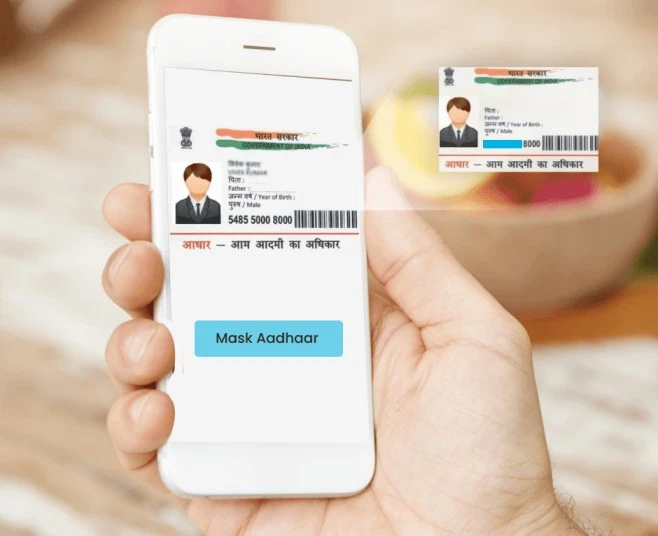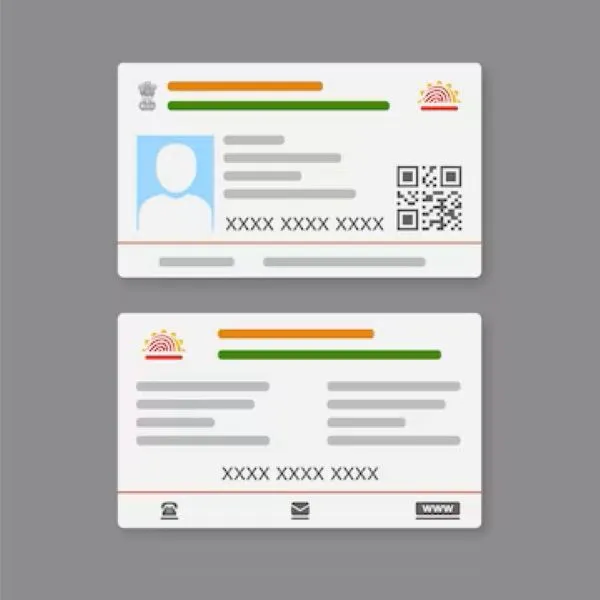Table of content
Introduction
In the modern age of information technology, data privacy is more important than ever. Given the increasing number of cyber threats and data breaches, safeguarding personal information is a main concern. One of the most central elements in India’s data privacy is Aadhaar card masking . But what does Aadhaar card masking really mean, and why does it matter? This blog examines how important it is to mask an Aadhaar card in terms of protecting personal details and sustaining data confidentiality.
Overview of Data Privacy
Data privacy relates to fair handling, processing, storing as well as usage of personal information. Hence, it is about keeping unauthorized people from being able to reach or retrieve an individual's documents. The risk of digitalizing more private data implies that there are higher possibilities for leaks and abuse. The necessity for strict guidelines on data privacy became apparent with the increase in cases involving identity thefts and thus making use of confidential information without authority. Consequently, this brings about the importance of employing Aadhaar card masking as a significant measure to curb this issue.

Understanding Aadhaar Card Masking
Aadhaar is a unique identification number assigned by the Indian government to its citizens containing twelve digits. It takes care of biological traits and other demographics, thereby making it important for one’s identity marking. However, due to this reason alone, it makes a good target for fraudsters who may want to steal someone’s identity.
Aadhaar Card Masking as a Concept
Masking of Aadhaar card involves obscuring some parts of the Aadhaar number for public sharing or through digital platforms. Normally, the first eight digits are covered, while the last four are displayed. This way, it becomes difficult to get hold of the entire Aadhaar number, hence reducing chances of its misappropriation. By masking the Aadhaar Number, one can share necessary information without compromising on security.

Importance of Data Privacy
Data Breaches and Their Consequences
Consequently, data breaches have severe consequences which may include; financial losses, reputational damage as well as legal implications. Revealing sensitive details like Aadhaar numbers can also result into identity thefts and frauds. Compromised individuals may face financial loss, credit score damage, among others lasting effects. These kinds of breaches can cause immense harm to an organization’s reputation and come with legal implications.
Implications for that Data Leakage.
The laws protecting data differ from one country to the other, including India, and they are very strict. In some cases they can be severe, there may be penalties for noncompliance and people can sue a company and declare it in bankruptcy. The online data transferred through Aadhaar number is not only legally, but it is also ethically safe to retain. Indian Personal Data Protection Bill identifies that there is a need of having strict controls on the personal data of individuals like Aadhaar number. Aadhaar verification processes need to be integrated to cleanse the data and ensure that the data kept is safe. For this reason, organizations must adhere to these laws in order to avoid legal repercussions and retain their clients’ trust.
Why Aadhaar Masking is Essential
Safeguarding Personal Information
To prevent non-authorized entry into personal information, one could mask an Aadhaar. If most numbers (of Aadhaar) were concealed, then it would lessen chances of identity frauds or theft.
Preventing Identity Theft
Identity theft is on the increase, due to which hackers focus their activities on acquiring Aadhaar numbers. By making it more difficult for cyber criminals to steal people’s identities through hiding Aadhaar number, this means that they will find it hard to do so without being caught by law enforcement agencies who track them.
Regulation Compliance
By implementing the concept of Aadhaar masking, an Aadhaar Card supports compliance with data protection regulations. This is evidence that the company has taken steps towards ensuring personal information’s safety, which can result in positively impacting their reputation. By embracing the practice of hiding customer ID cards, organizations show their commitment towards safeguarding customer data as well as maintaining high levels of privacy when dealing with this data. Regulatory compliance also provides protection against legal implications and helps in building credibility among clients.
Implementation of Aadhaar Masking Techniques
Tools Used for Aadhaar Masking
Aadhaar masking can be done in several ways such as encryption, tokenization and obfuscation. These mechanisms ensure that every time the sensitive data is secured adequately.
The Best Practices to Follow in Implementation
It means that organizations should adhere to the best practices in place while implementing Aadhaar masking; this involves regular audit’s employee training and utilization of advanced technologies for securing data.
Future Perspective on Aadhaar Masking and Data Privacy
Emerging Threats and Solutions
Data protection measures must change along with cyber threats. The future approach to Aadhaar masking will entail cutting-edge technology and constant improvement so that it stays ahead of the possible risks.
How Technology Enhances Data Privacy?
New technologies such as; Artificial intelligence and blockchain also have potential for improvement of data privacy. Such technologies provide new approaches to preserving confidential data and avoiding violations of the law. Machine learning techniques can be used to identify intrusions within big data and compare it to real-time observations and draw out irregularity within data access. Blockchain technology gives a transparent and, at the same time, an unchangeable record of masked Aadhaar transaction that cannot be falsified. These technologies, thus, enable organizations to enhance the security of data privacy variables and safeguard Aadhaar details.
Conclusion
Therefore, Aadhaar card masking is a crucial step towards bettering the conditions of the country in the sphere of data protection. It would guard the identities, secure from identity theft, and adhere to the lawful requirements. Hence, incorporating effective Aadhaar card masking measures are going to be pertinent as threats are continually being developed in this digital realm. Thus, using Aadhaar card masking organizations show their concern towards data privacy, increase level of trust in customers and minimize the chances of being attacked. In recent years, as common use of computers as well as the Internet continues to rise, privacy has become more important than ever and covering Aadhaar cards is one way to it.